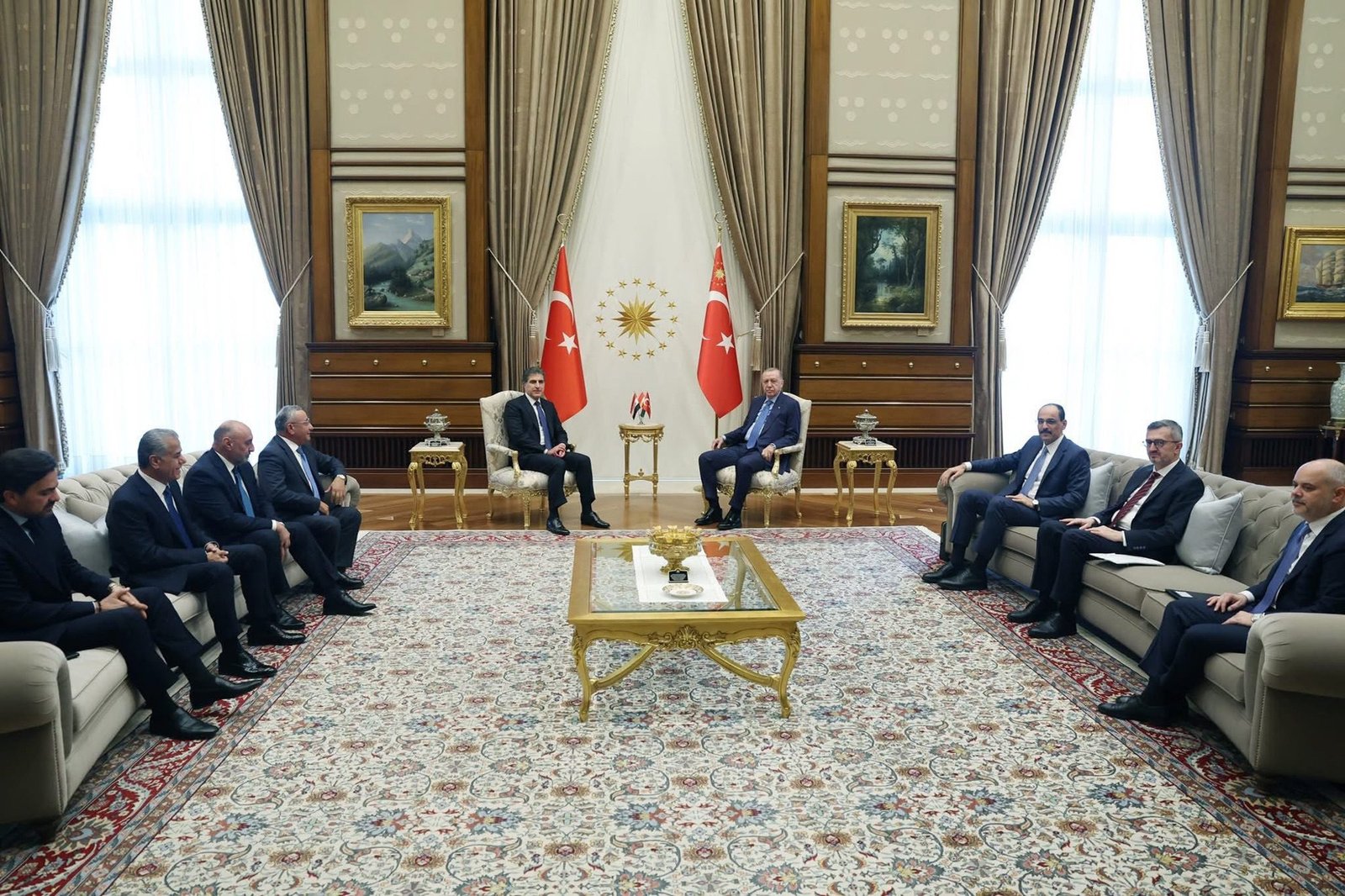Nechirvan Barzani has phoned Mazloum Abdi ahead of his meeting with Erdoğan

Today, Kurdistan Region President Nechirvan Barzani met with Turkish President Recep Tayyip Erdoğan in Ankara, in the presence of Turkish intelligence chief İbrahim Kalın. He also held a separate meeting with Foreign Minister Hakan Fidan. Before departing for Ankara earlier in the day, Barzani spoke over the phone with Mazloum Abdi, the commander of the Syrian Democratic Forces (SDF).
Context: Speaking at a conference in Erbil yesterday, Barzani stressed that the new Syrian political system cannot be centralized if the country’s diverse groups are to coexist peacefully. “I have told Ahmad al-Sharaa this in person,” he said, referring to the current Syrian president. Barzani added that the SDF cannot be expected to simply “melt” as individuals into the Syrian army, calling such proposals “unrealistic.”
At the same time, he urged the SDF to engage directly with Damascus, describing it as their capital, and to actively participate in the country’s political process.
Analysis: It remains unclear whether Barzani conveyed any direct message from Mazloum Abdi to Turkish officials. However, the timing of the phone call strongly suggests that he is acting as a key interlocutor to establish more direct communication and understanding between the SDF and Ankara. Barzani has a personal relationship with President Ahmad al-Sharaa and his brothers, having met them earlier this year at a conference in Turkey. He also played a quiet but pivotal mediating role years ago in helping to mend relations between Erdoğan and UAE rulers—at a time when Erdoğan needed trusted intermediaries. Moreover, unlike the other Barzanis, Nechirvan also maintained contact with Mazloum Abdi even during the low points in relations between the KDP and the SDF in earlier years.
Barzani’s visit to Ankara comes one day after his speech in Erbil and two days after Mazloum Abdi met with al-Sharaa in Damascus in the presence of U.S. envoy Tom Barrack. Syrian officials have indicated that the SDF-Damascus agreement signed on March 10 has a tentative deadline of the end of this year for implementation—warning that Turkey’s patience may run out if no progress is made.
Ankara has long rejected any form of Kurdish federalism in Syria, a position Damascus also shares. Syrian officials have, however, shown openness to a form of “administrative decentralization,” while rejecting political decentralization that includes a separate armed force or similar demands. While Barzani publicly argued that the future Syrian system should be decentralized and that the SDF should preserve some of its current structure, a well-informed source told The National Context that Barzani has also privately warned the SDF that it cannot replicate the model of the Kurdistan Region of Iraq, as the contexts are fundamentally different.
The indirect communication between Mazloum Abdi and Erdoğan through Barzani comes as Turkey signals it may escalate by year’s end if the March agreement is not implemented. Establishing a “Barzani channel” may help create a de-confliction mechanism to prevent tensions from reigniting into open conflict—but whether this is sufficient to preserve the current fragile status quo remains to be seen.









